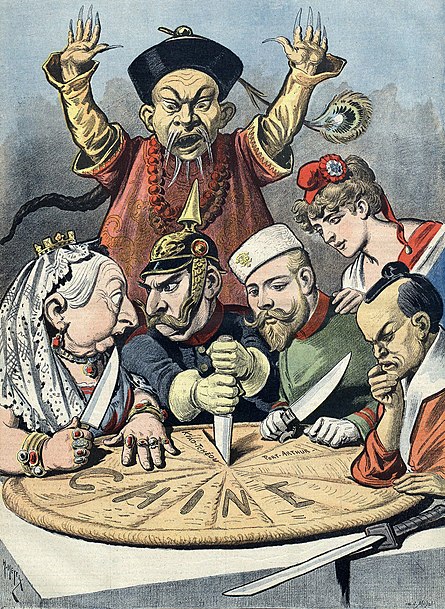Clothing
This is the ceremonial robe worn by the young Tongzhi Emperor at his coronation. Compare it with the robes worn by Oscar Leung and Pako Au, who both played Tongzhi in The Confidant.


There were different attire for different occasions. On the left is a ceremonial robe worn by the Jiaqing Emperor for the sacrifice ceremony at the autumn equinox. On the right is a ceremonial armour for the Yongzheng Emperor when he performed military inspections.


Here are some styles for imperial women. The left picture shows an Empress's ceremonial summer coat and the right picture shows an informal riding jacket.


This dress was most likely worn by Empress Dowager Cixi, as it is similar to the dress that she was wearing in the portrait on the right.


Even animals got special treatment! On the left is a saddle made for the emperor's horse. On the right is an outfit made for an imperial dog. There were special eunuchs assigned to take care of the royal animals.


Footwear for men versus women in the palace.


Symbols of Authority
This was the setting of the imperial throne in the Inner Court. It was less lavish than the throne in the formal halls of the Outer Court, but still conveyed the Emperor's royal status. It was surrounded by various objects such as fans with elephant stands, crane candle-holders and luduan (a Chinese mythical creature) figures. Compare it to TVB's setting in The Confidant.


Each emperor inherits the set of imperial seals. Originally, there were 39 seals in the set, each with different titles and purposes. However, the Qianlong Emperor found this to be confusing and reduced the set to 25 seals. The remaining seals were placed in a collection at the old Manchurian palace, including this one, which had the inscription "皇帝的寶" ("Treasure of the Emperor").


The Yongzheng Emperor had this special seal made for himself. It had the phrase "為君難" ("being ruler is difficult") to remind himself to be a diligent ruler.

This is an imperial edict issued during the Yongzheng era, written in both Chinese and Manchu.


This is an example of a "tally" that was used by anyone who wanted to enter or exit the Forbidden City. There were two pieces to a tally - one with the words raised and one with the words carved into it. Anyone who wanted to pass through the gates had to have one piece of the tally, which they would hold up against the guard's piece. If the two pieces fit together, they would be allowed to pass.

Tableware
This is a rare chicken cup from the Ming Dynasty. Emperor Chenghua's mother was particularly fond of small utensils, thus the Emperor especially ordered for this cup to be made for her. The unique thing about the cup is the way the colours were applied. Using a technique called doucai (鬪彩), the colours were painted both under and over the glaze. Only a few of these original cups survive to this day; one of these cups was sold for $36 million in an auction.

These are plates used in Tongzhi's wedding to Lady Alute (Natalie Tong in The Confidant). Tongzhi was one of only few Qing emperors who married while occupying the throne, thus it was a grand occasion for celebration. In particular, 10,000+ wedding wares were ordered to be made. It took five years to make all the pieces before the wedding. They contained symbols of good fortune, such as children playing (left) and the Chinese character for "happiness" (right).



This food basket could hold everything that the Emperor needed for a picnic. It had a silver wine pot, six wine cups, ten dishes, a large silver plate and ten sets of chopsticks.


Arts and Literature
Portraits of the Yongzheng Emperor. Does Ben Wong look like him in Gilded Chopsticks?



When he was still a prince, Yongzheng commissioned a set of paintings of 12 beautiful women. They featured the ladies engaged in various leisurely activities with scenery from the courtyard in the background. The paintings were mounted on a screen in the prince's favourite study. It is uncertain who exactly these women were; they may have been his concubines. (Could it have been Joey Meng from Gilded Chopsticks?)



This is a compilation book of poems that were written by the Qianlong Emperor. Throughout his lifetime, he composed more than 42,500 poems!






.jpg)













.jpg)
